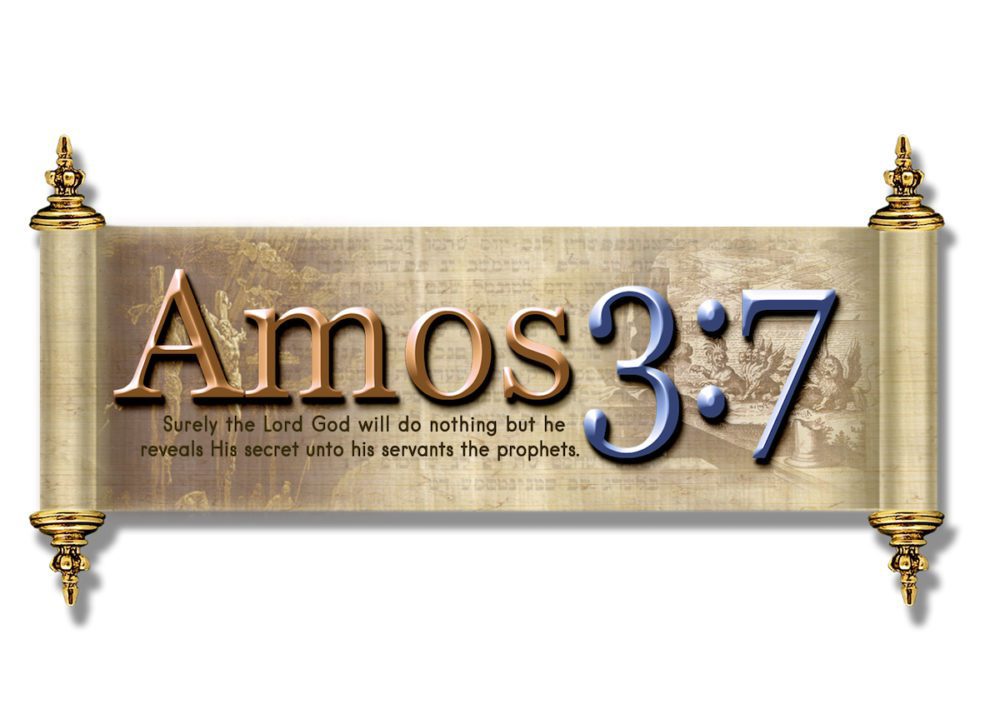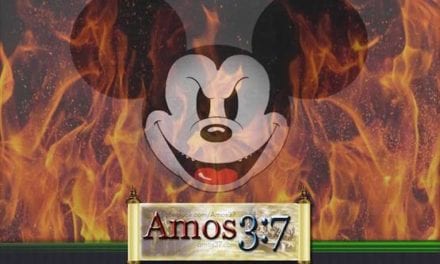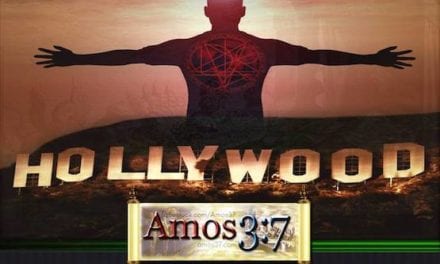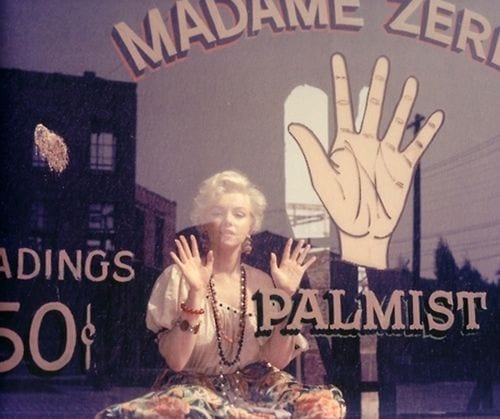Warning: Humungous spoilers ahead!
If you enjoy watching people getting killed execution-style, boy do I have the Netflix series for you. It’s called Squid Game and it also features a bunch of people falling from high platforms and splattering onto the ground. Indeed, you will witness so many brutal deaths in Squid Game that you won’t have a choice but to become desensitized to them. Even the characters in the series end up having whole conversations about their childhood or something while others are getting shot in the face about ten feet away from them. They don’t care anymore. And you won’t either. And that’s kind of the point.
Despite the fact that Squid Game features extreme levels of gore and violence, the marketing surrounding it seems insidiously conceived to be appealing to children.
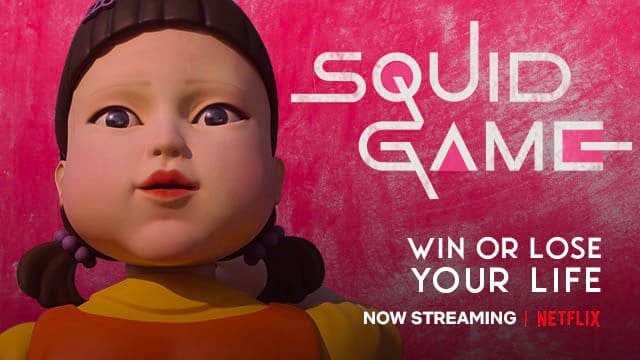
This is one of the images one can come across while browsing Netflix. Children could easily mistake this thing for a children’s movie and there is nothing preventing them from watching it.
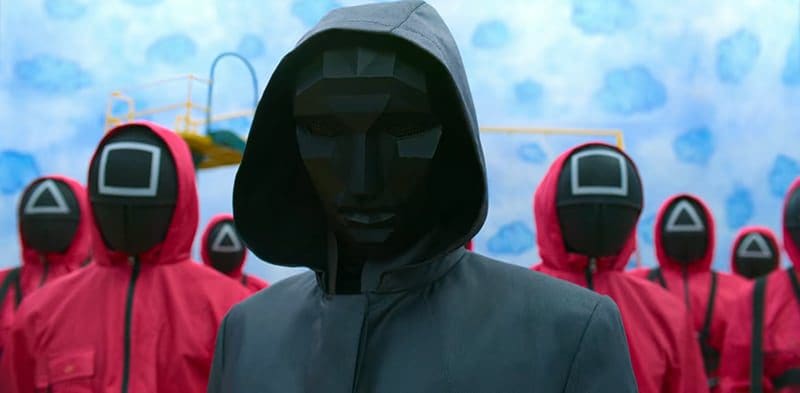
The main villain looks like he’s straight out of an episode of the Mighty Morphin Power Rangers. His workers look like buttons on a Playstation controller.
In short, everything is there to lure children to the series to then traumatize them with scenes of rare violence and psychopathic mind games.

A Squid Game-themed playground in a shopping mall in South Korea. In the series, the playground is where dozens of poor people get killed by soldiers, all for the elite’s entertainment. Today’s pop culture is sick.
At the core of Squid Game is the age-old and undying “legends” of rich elite people recruiting peasants to take part in deadly games for their entertainment. The 1924 short story The Most Dangerous Game is about a Russian aristocrat who captures people, releases them in the wilderness, and hunts them for sport; The 1994 movie Surviving the Game is about a homeless guy who gets offered a “job” only to end up in a remote location to become prey in a hunting game played by rich and powerful people. More recently, the Hunger Games trilogy is all about poor people killing each other under the watchful eyes of the elite.
Many legends are based on true stories. And there’s something about these “elite games” stories that ring true. Squid Game took this age-old concept, added today’s society flirtation with high tech dystopia, and mixed in a whole lot of occult elite insanity. The result appears to have struck a nerve because Squid Game is on its way to becoming the biggest Netflix series in history.
But, like most Netflix series, the messages in Squid Game are twisted. It is about the culture of death that obsesses the elite and making the viewers a part of it. And, through subtle symbolism, the philosophy of the elite is there for you to witness.
Here’s a look at the messages and the symbolism in this series.
Two Circles
The series is about heavily indebted people who get recruited to play a “game” where the winner gets a massive cash prize. The losers die. We eventually learn that this entire ordeal was orchestrated by a group of rich elite people who enjoy watching miserable peasants being humiliated, infantilized, and forced to become immoral animals in order to survive.
The core theme of this series is aptly summed up during the very first seconds of the first episode.

The introduction of the series shows an overhead view of children playing Squid Game.
The outline of this game is also the main logo of the series. The reason: It perfectly illustrates the core philosophy of Squid Game and, by extension, the elite. The rectangle represents the masses. The circle at the bottom of it represents those who are poor and heavily in debt. The triangle above the rectangle represents the elite ruling over the masses. The upper circle represents the all-powerful occult elite that controls the world.
Appropriately enough, the narrator explains that the children who play Squid Game must make their way to the upper circle to win. When that happens, the narrator says:
“And, in that moment, I felt as if I owned the entire world.”
“Owned the entire world” … like the elite represented by that upper circle.
At the beginning of the series, the main protagonist named (Gi-hun) is clearly in the lower circle of society. He steals money from his mother and runs away from the shady people to whom he owes money.
Then, Gi-hun gets his first taste of elite sickness. While waiting for the subway, Gi-hun is approached by a mysterious salesman who happens to know everything about him. He proposes Gi-hun to play a game where he can win money.
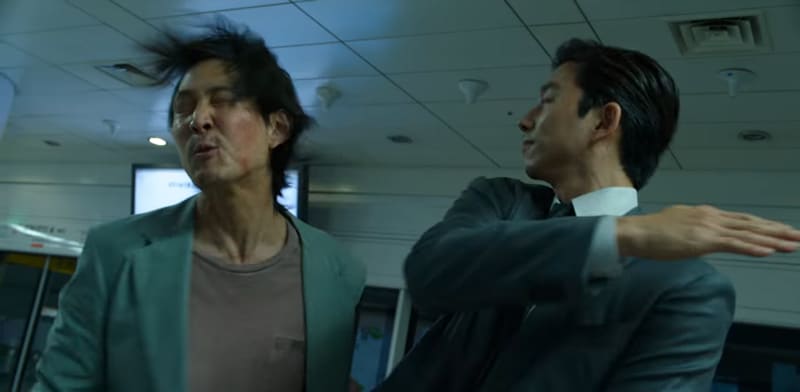
When the salesman wins, he doesn’t want Gi-hun’s money. He wants to slap him in the face. The elite doesn’t get pleasure out of more money, it gets pleasure out of sadistic thrills such as slapping this poor guy in the face over and over again.
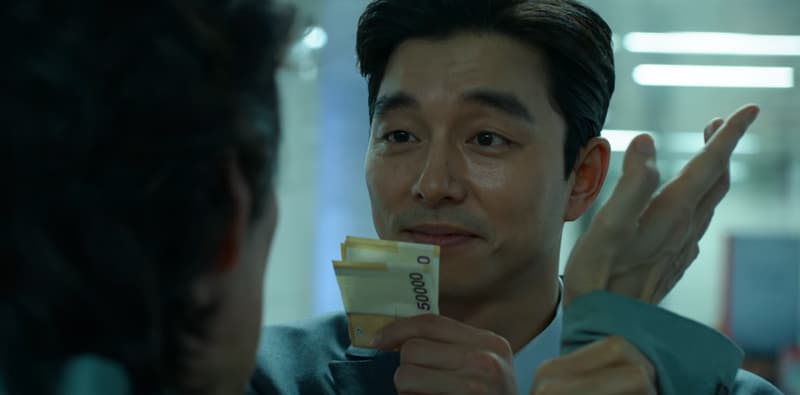
When Gi-hun finally wins a round, he can’t wait to slap the guy right back in the face. However, stops him and shows him the money.
For a moment, Gi-hun did not care about the money, he got caught up in the sadistic thrills of the elite. This scene foreshadows what will happen to Gi-hun in the end. After this humiliating game, the salesman proposes Gi-hun to participate in another game that promises much more money.
After accepting the offer, Gi-hun is picked up by a car and is gassed to sleep. He wakes up in a dystopian nightmare.
Squid Game = Society Ruled by the Elite
The games take place in a massive compound hidden on a remote island. In many ways, this place resembles an MKULTRA black site where sick experiments take place. And the dystopian system that takes place inside these walls is a microcosm to our modern society.
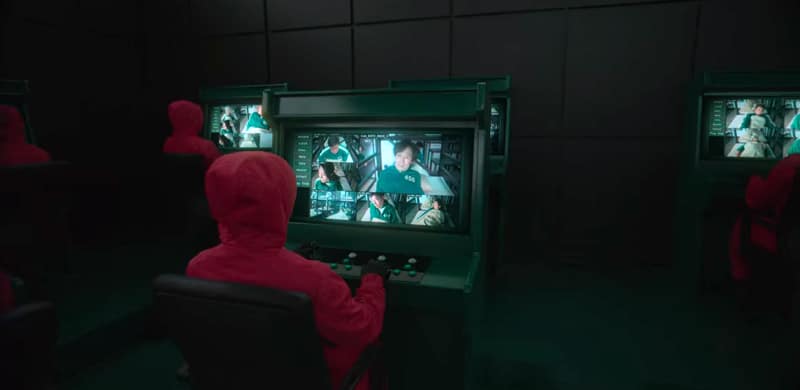
Players are reduced to a number and are constantly monitored.
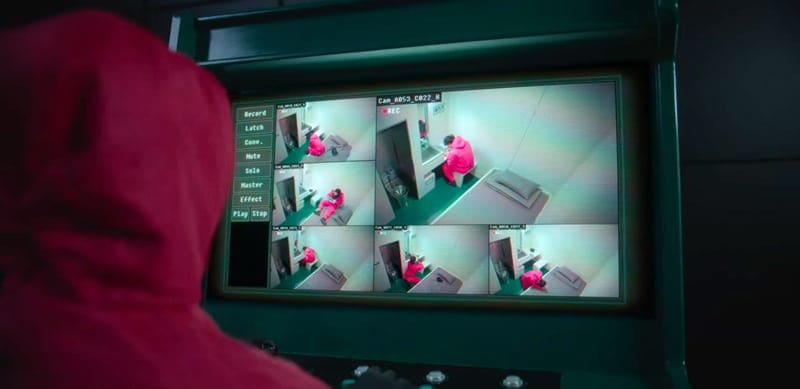
The workers who enforce the rules are also tightly monitored.
The players of the game are stripped of all possessions, dignity and are infantilized to a ridiculous degree. These players represent how the elite perceives the masses.
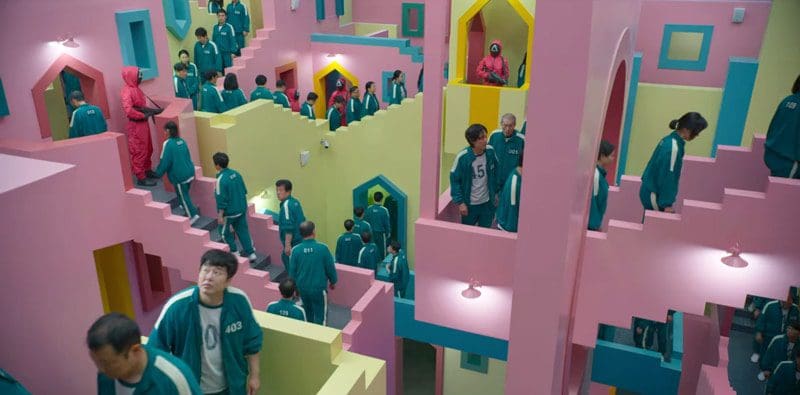
Before each game, the players are taken through a maze of stairs inspired by M.C. Escher paintings. This place conveys a sense of confusion and disorientation which furthers the players’ infantile state.
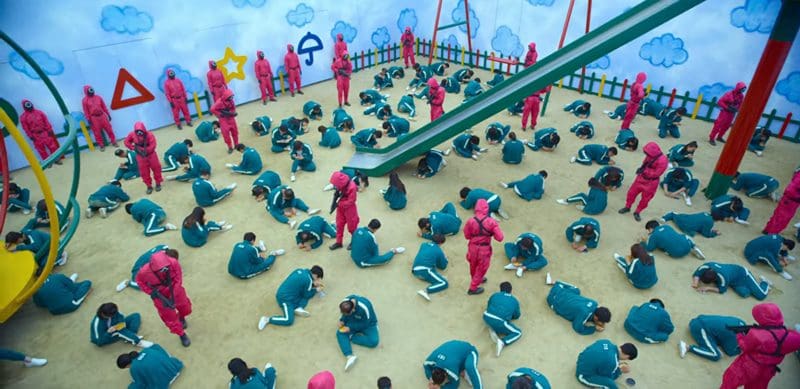
Games take place in colorful playgrounds which we naturally associate with the fun and innocence of childhood. However, every “playground” becomes the site of brutal mass murders carried by faceless workers. They hate the wholesomeness of childhood. They want sad, broken individuals.
At one point, the players actually band together and demand a vote to end this madness.
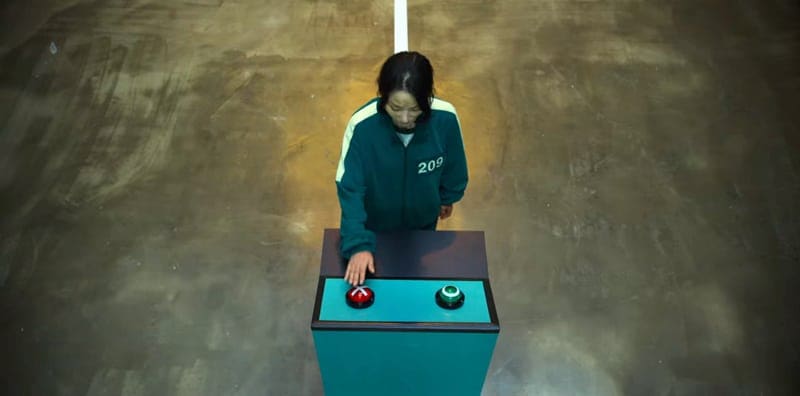
A rule allows players to vote to stop the game.
The players end up voting for stopping the game and everybody goes back home. However, nearly everyone realizes that they have lots of problems that can only be fixed with money. Conveniently enough, the organizers of the game keep track of these players and invite them back. The result: Most of the go back to the game by their own free will. This concept is important to the occult elite as they believe it liberates them from karmic laws.
In short: The democratic process was an illusion. The elite rigged the system to obtain the result it wants to see.
When they’re back in the game, the solidarity between the players quickly dissipates. In order to see the players turn on each other, the organizers purposely give them a single egg as a meal. Surely enough, the players start fighting for the precious eggs. This reflects a classic tactic of the ruling class: By making resources scarce, the masses stop focusing on the rules and start fighting each other for scraps.
The next games are specifically designed to pit the players against each other. For instance, the marbles game requires players to form teams of two. Naturally, most players team up with the person they are closest to. One guy even matches up with his wife. Then they learn that the two players must play against each other … and the loser dies.
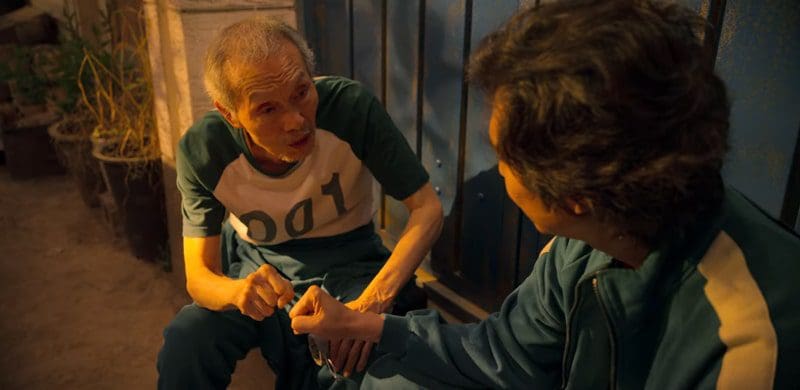
Gi-hun tricks this old confused man (who was his friend) to win the game. He had to stoop low to survive. More on the old man later.
Players also realize that they can kill each other with total impunity outside of games. This leads to chaos and murders when the players are in the main area.
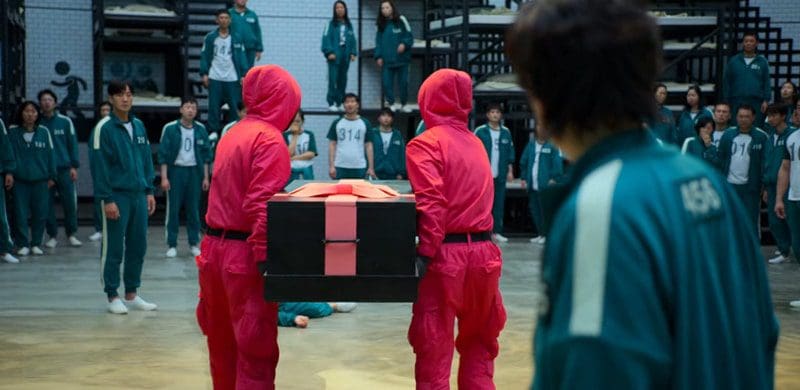
Dead bodies are placed in creepy black boxes with bows on them. A gift of human sacrifice to the elite.
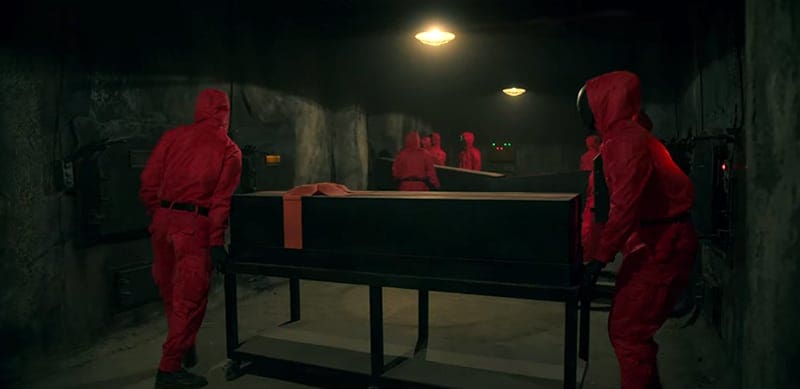
The bodies are incinerated in industrial-size installations. Considering the fact that the elite is obsessed with global depopulation, each death is a “gift”.
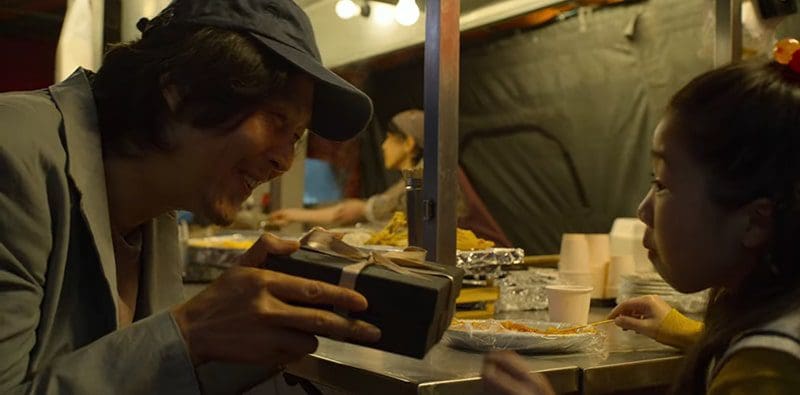
In the first episode, Gi-hun gives his daughter a gift that looks like the creepy coffins at the beginning of the series. One of the many instances of foreshadowing in the series.

When she opens up the box, we realize that the gift is a lighter shaped like a gun.
This scene foreshadows the numerous deaths by gunshot that are about to happen. Also, the gun is a lighter which can refer to the bodies being incinerated. The fact that Gi-hun gives this gift to his daughter is in line with the overall agenda of exposing the youth to the elite’s sickness.
Elite Sickness
For the final three games, the organizers welcome VIPs – ultra-rich, elite people who came to watch the games live. Through symbolism, the series indicates who exactly these people are.
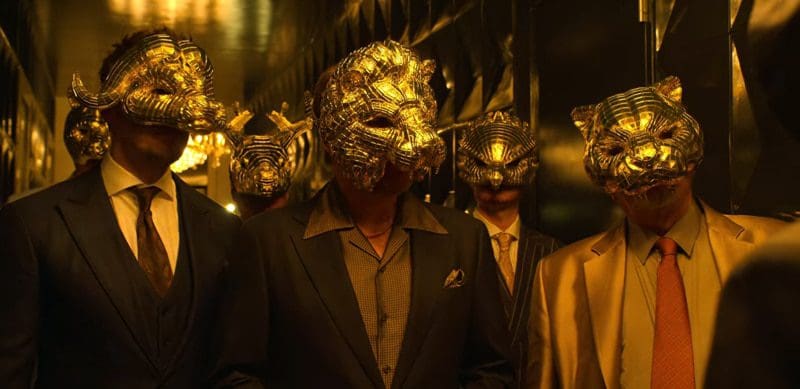
The VIPs walk around with animal masks on their faces – a practice the occult elite has been engaging in for centuries.
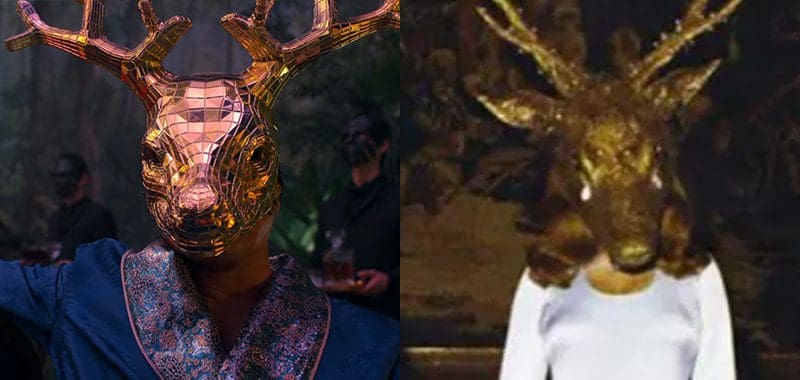
Left: One of the VIPs. Right: Helene de Rothschild at a 1972 occult elite ball.
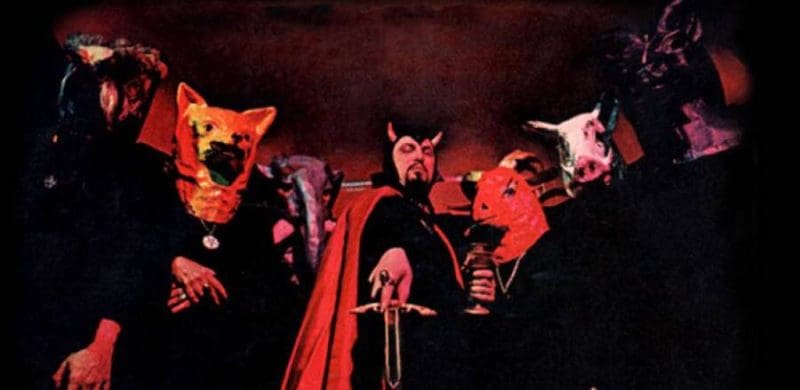
This picture from the Church of Satan website shows a bunch of people wearing animal masks symbolizing the embrace of humans’ animalistic side.
Appropriately enough, these VIPs are obsessed with the two core elements of humans’ animalistic side: Lust and blood.
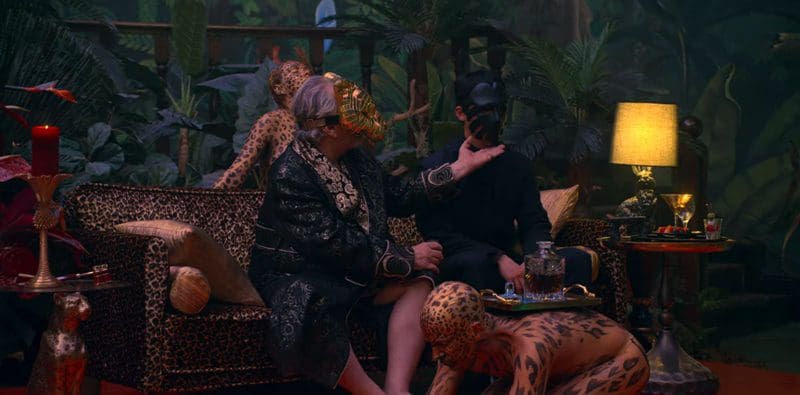
The lounge where the VIPs sit and watch poor people die is pure decadence. Humans are used as furniture and decoration – another way of portraying the dehumanization of the masses. This VIP is immediately attracted to the server who brings him drinks. He needs to “have” him right now.

The VIP brings the server to the “VIP room” to be satisfied. That room is covered with art that reflects the VIP’s advanced state of perversion.
After five games, there are only three players left. They are the “elite” players. Consequently, they are given fancy clothes and are treated to a feast. No more boiled eggs for these three. The setting of this feast could not be more symbolic.

For the feast, the tables are placed in the shape of a triangle with light fixtures in the center. That triangle is placed atop a checkerboard floor. Also, there are two “pillars” of light on each side.
This is all blatant Masonic symbolism.
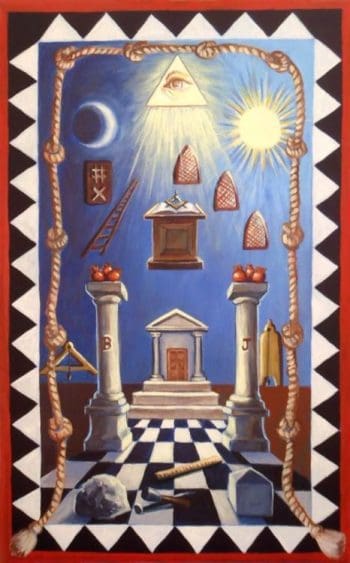
Classic Masonic symbols: The triangle with the all-seeing eye, the checkerboard floor, and the twin pillars.
This scene conveys the occult and ritualistic nature of this game. In Freemasonry, the checkboard floor is the transformative surface where rituals take place.
The most powerful ritual of all: Blood sacrifice. And that’s exactly what the VIPs want to see happen.

At the end of the feast, the workers remove everything … except for the steak knifes.
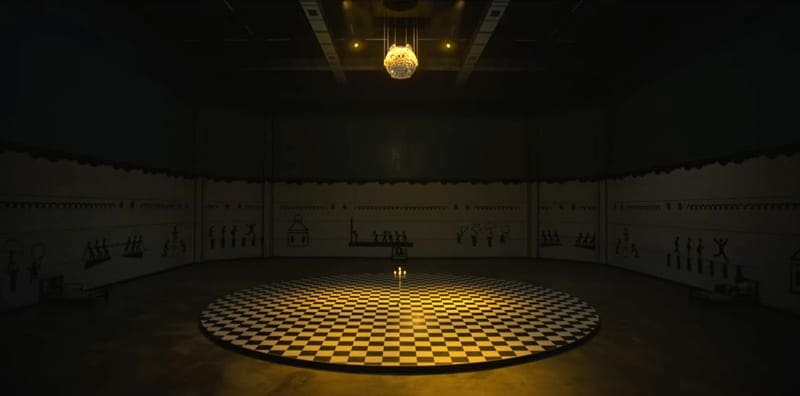
The three remaining players lie on their beds around the ritualistic floor while holding their knives. Also, notice that the walls are “decorated” with images depicting the horrific games the players have to go through. This is kind of like Netflix using “entertainment” to remind the masses of how they are being controlled by the elite.
As expected, one player slashes the throat of another player who dies. The blood sacrifice to the elite is complete.
If one fast forwards a whole lot of stabbing, we learn that Gi-hun ultimately wins the game. Therefore, he sent back to the real world with the equivalent of $38 million in his bank account.
Does he finally live it up? Nope. He’s basically dead inside and spends about a year mopping around. Then, Gi-hun receives a symbolic invitation.
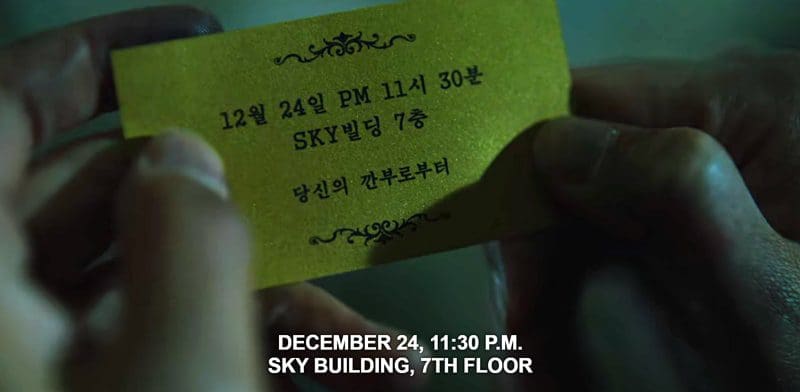
The meeting is on the 7th floor of a building called “Sky”, 30 minutes before Christmas.
In several spiritual schools including the Kabbalah, “7th heaven” (which is literally translated to “7th sky” in some languages) means “the highest heaven, where God and the most exalted angels dwell”.

Gi-hun finds the old man he played with on his death bed.
In a major plot twist, we learn that the old man is actually super-rich and the creator of the games. When Gi-hun asks him why he created such a horrific system, he answers:
“If you have too much money, it doesn’t matter what you buy, eat or drink. It all gets boring. All of my clients eventually started saying the same things when we talked. Everybody felt that there was no joy in their lives anymore. And so, we decided to get toghether and started asking what could we all do to finally have some fun?”
Does this explain why the elite partakes in such extreme and depraved activities (i.e. Epstein Island)? In any case, for this old man, simply watching the games wasn’t enough anymore. He wanted to actually be part of it to feel alive.
When one rewatches the series, one realizes that this old man (aka player #001) had a great influence in the game (while also apparently being immune to actually getting killed). He was the equivalent of an elite plant amongst the masses. For instance, he had the final and deciding vote during the democratic process. Also, it was his screams that prompted the workers to stop the night of murders after the egg incident.
Gi-hun apparently comes out of his meeting in the 7th sky a changed man. To reflect this profound change, he dyes his hair red (which is also the color representing sacrifice and initiation in occult circles). Then, he decides to board a plane to finally go see his daughter.
However, at the last second, he turns back.
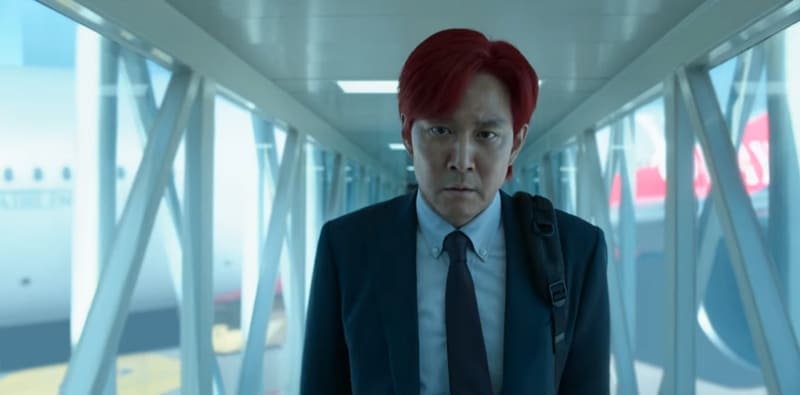
Gi-hun wants to return to the game because he says that “he needs to know who is behind it”.
So, instead of seeing his own daughter, Gi-hun wants to go back to the madness? That’s crazy. The real reason for him wanting to back: He is now infected with the sickness of the elite – represented by his red hair. He feels dead inside … unless he partakes in the extreme thrills of the game.
The ultimate proof of this is the fact:
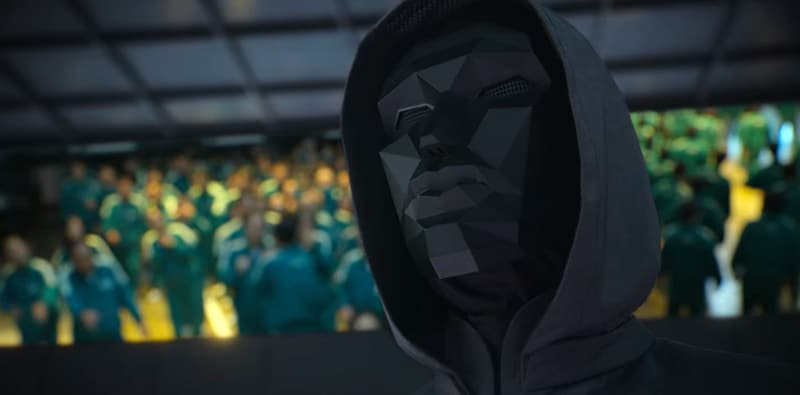
The guy who oversees the Squid Game was a past winner. He also got infected and needed to go back.
In short, the ending is not happy. Everyone loses the game. Except for the elite watching the games.
In Conclusion
Squid Game became the biggest series in Netflix history for several reasons. Beyond its shocking violence and gripping story, the series explores several themes such as religion, human nature, and the pitfalls of economic inequalities. While several news sources interpreted Squid Game as a “critique of capitalism”, they seem to overlook the most obvious and glaring theme: Society being ruled by a sick occult elite that takes pleasure in dividing, controlling, dehumanizing, infantilizing, and outright abusing the masses. And that story doesn’t end with this sick game being taken down, it ends with the winner turning into them.
In the end, we witness a form of Stockholm Syndrome where people who are abused end up identifying with the abuser. And that’s kind of the goal of the series: The viewers end up enjoying watching this sick form of entertainment the same way the VIPs enjoy watching people getting killed.
